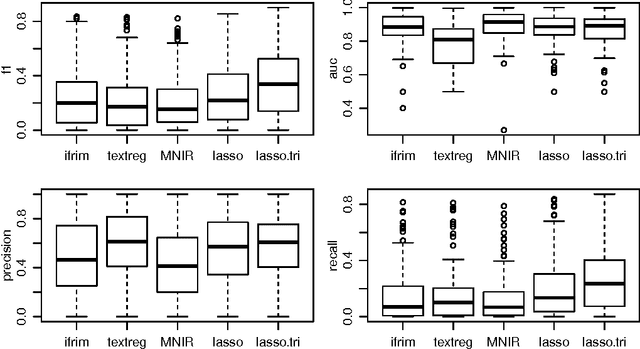Robin Ackerman
Conducting sparse feature selection on arbitrarily long phrases in text corpora with a focus on interpretability
Jul 23, 2016



Abstract:We propose a general framework for topic-specific summarization of large text corpora, and illustrate how it can be used for analysis in two quite different contexts: an OSHA database of fatality and catastrophe reports (to facilitate surveillance for patterns in circumstances leading to injury or death) and legal decisions on workers' compensation claims (to explore relevant case law). Our summarization framework, built on sparse classification methods, is a compromise between simple word frequency based methods currently in wide use, and more heavyweight, model-intensive methods such as Latent Dirichlet Allocation (LDA). For a particular topic of interest (e.g., mental health disability, or chemical reactions), we regress a labeling of documents onto the high-dimensional counts of all the other words and phrases in the documents. The resulting small set of phrases found as predictive are then harvested as the summary. Using a branch-and-bound approach, this method can be extended to allow for phrases of arbitrary length, which allows for potentially rich summarization. We discuss how focus on the purpose of the summaries can inform choices of regularization parameters and model constraints. We evaluate this tool by comparing computational time and summary statistics of the resulting word lists to three other methods in the literature. We also present a new R package, textreg. Overall, we argue that sparse methods have much to offer text analysis, and is a branch of research that should be considered further in this context.
 Add to Chrome
Add to Chrome Add to Firefox
Add to Firefox Add to Edge
Add to Edge